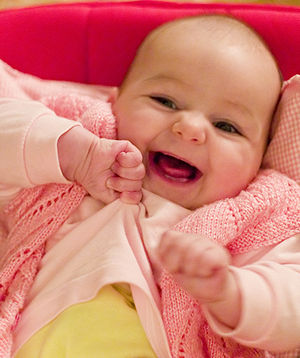As I mentioned in the first installment of this series, I am truly fascinated by novel names. Every generation has them, and while it feels like we have more than ever, we can’t really know if that’s true.
In part one, what we have less of in 2012. There’s less pressure to Anglicize a name, encouraging parents to consider Matteo or Matthias, rather translating it to Matthew. Naming conventions and family traditions have faded, meaning that parents no longer look exclusively to relatives’ or saints’ names. And the need to put a formal name on the birth or baptismal certificate has lessened, meaning that we have Sadie and Sarah, Jonathan and Jack.
Now let’s turn our attention to what we have more of in 2012:
7. There is sometimes staggering pressure to avoid duplication.
Once upon a time, you might have named your son William after your dad, even if your brother Bill had already named his boy William, too. Then again, you might already share the name Mary with your sister-in-law, your best friend Mary Jane and your neighbor Mary Anne, to say nothing of the grandmother after whom you were named in the first place.
Today we see the absolute opposite: “We can’t use Zoe because my co-worker’s sister just used it.” Or “We considered Katherine, but my husband used to date a girl with a sister called Kate.” Most painfully, “My friend stole Mason, and now we have nothing to name our son!”
Instead, the parents settle on Ava and Claire and Riley, and they’re none too pleased when their next job brings them a boss with a daughter called Rileigh or the new neighbors move in with an Ava or Claire the exact same age. Popular names still repeat; we’re just far less tolerant of the ages-old phenomenon.
Because most of us change jobs, move towns, graduate from the local playgroup to a large middle school, we haven’t solved the problem of duplication if we know no child by the same name at birth.
Instead of shrugging off the repetition of William, cousins now call dibs on family names. As repeating names – even the most common, enduring names – becomes taboo, this inevitably means there are more names in use.
6. Access to the pool accelerates.
There’s a reason that the Bible was source for inspiration for baby names: it was there. Even into the nineteenth century, families owned few books. Those who learned to read often learned by reading Bible verses. If you wanted to find a name that you hadn’t heard used by your immediate family and neighbors, the Good Book was a go-to resource.
Literacy rates are tricky to pin down, but one estimate suggests that between 1841 and 1900, the rate in England and Wales soared from around 60% to close to nearly 100%. Books and other printed materials were becoming affordable for the first time, though a handful of novels could claim bestseller status as early as the seventeenth century.
We remember the world pre-Amazon, but few of us can think of what it would be like to not have a bookstore of some kind, and a lending library, too, readily accessible. The pool expanded slowly, with the Bible, along with a growing number of popular novels, songs, histories, and other sources encouraging parents to consider Homer or Geneva.
And now there’s this little thing call the internet, and we are flooded by the possibilities.
5. More access also means more information about the edges.
If we face a constant deluge of information, much of it is about lives at the extremes. While public figures can add their names to the pool, that’s been happening for centuries.
What’s new in the twenty-first century is that we’re surrounded by celebrity gossip and reality television. Suri and Apple might still strike you as outrageous – but you’re not surprised to hear them, and they make Sadie and Clementine sound downright ordinary.
It isn’t just Hollywood royalty, either – from the Kardashians to the Duggars, we hear extreme names often and casually. Khloe and Jinger open the door for Jorja and Cate. And when sports figures are known as Bear and Jimmer, is it really so strange to name a son Fox or Kenner?
Our familiarity with names on the edges expands the comfortable middle, making choices that would have been outside the mainstream just a few decades earlier feel perfectly approachable.
Catch up by reading the first installment here and the third and final installment here.





I think it is so funny about name duplication… I am totally on board.. I want a unique baby name.. Luckily Our top boys and girls names have not appeared on any family members or friends babies, or even on any of their “final lists”. I do think that its because most of mine are pretty rarely used and are not family names. I did get a little twinge when my husbands cousin (who we are very close with, so our kids would hang out often) named her little girl Parker. Parker used to be my favorite boys name pre-marriage, but that changed when when I fell in love with a man who’s name ends in -er. I thought I had gotten over loving the name and moved on, after all we have been married for 5 1/2 years… but when she used it I was still sad even though I new I was never going to use it because of it rhyming with our last name. Isn’t that funny/ weird. As for our siblings “claiming names”, no one has yet, but only time will tell. It is interesting how protective of baby names we have become.